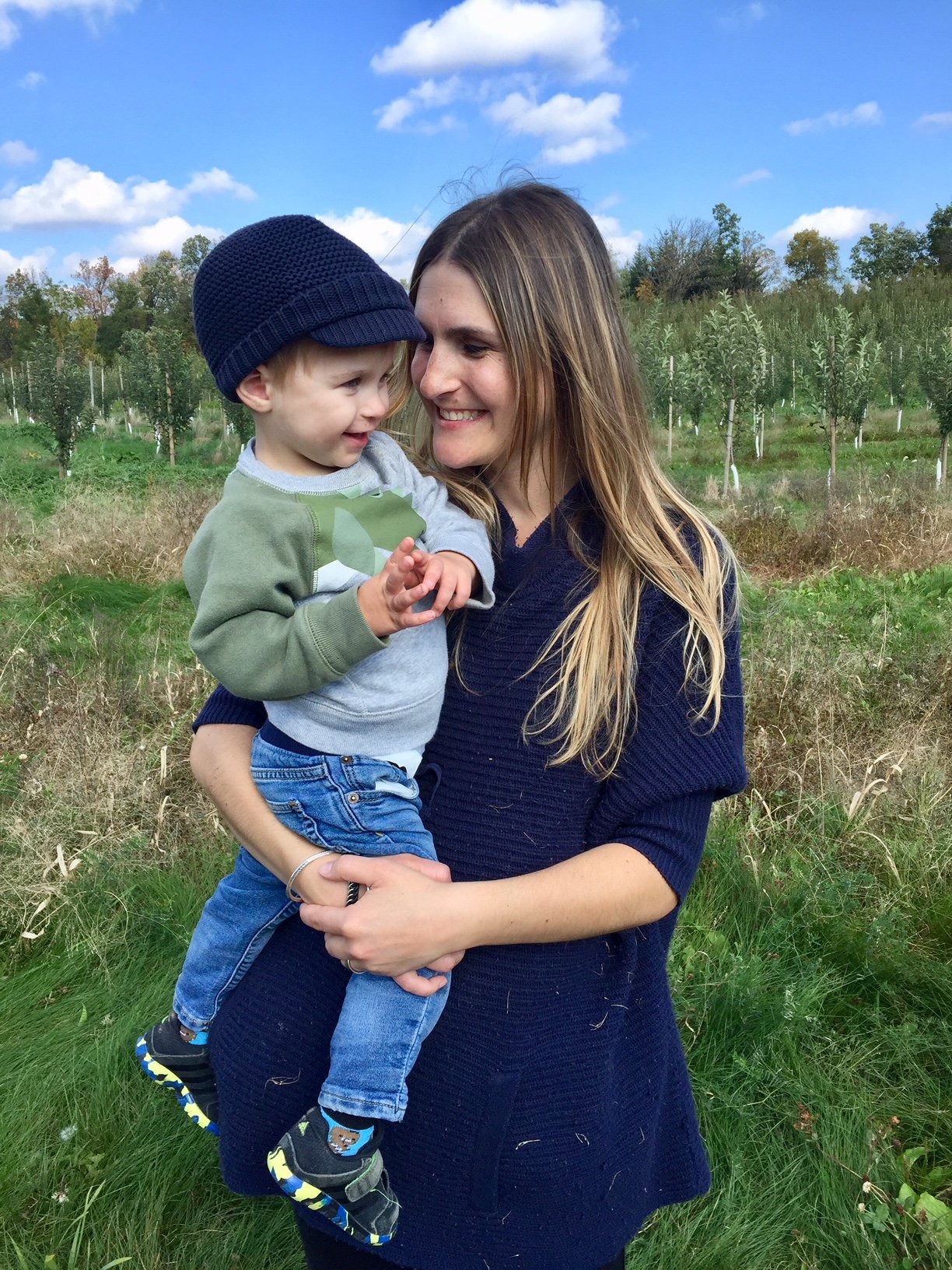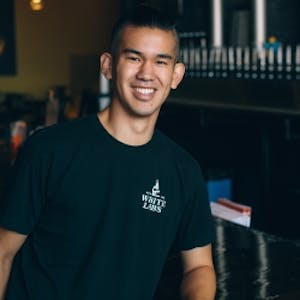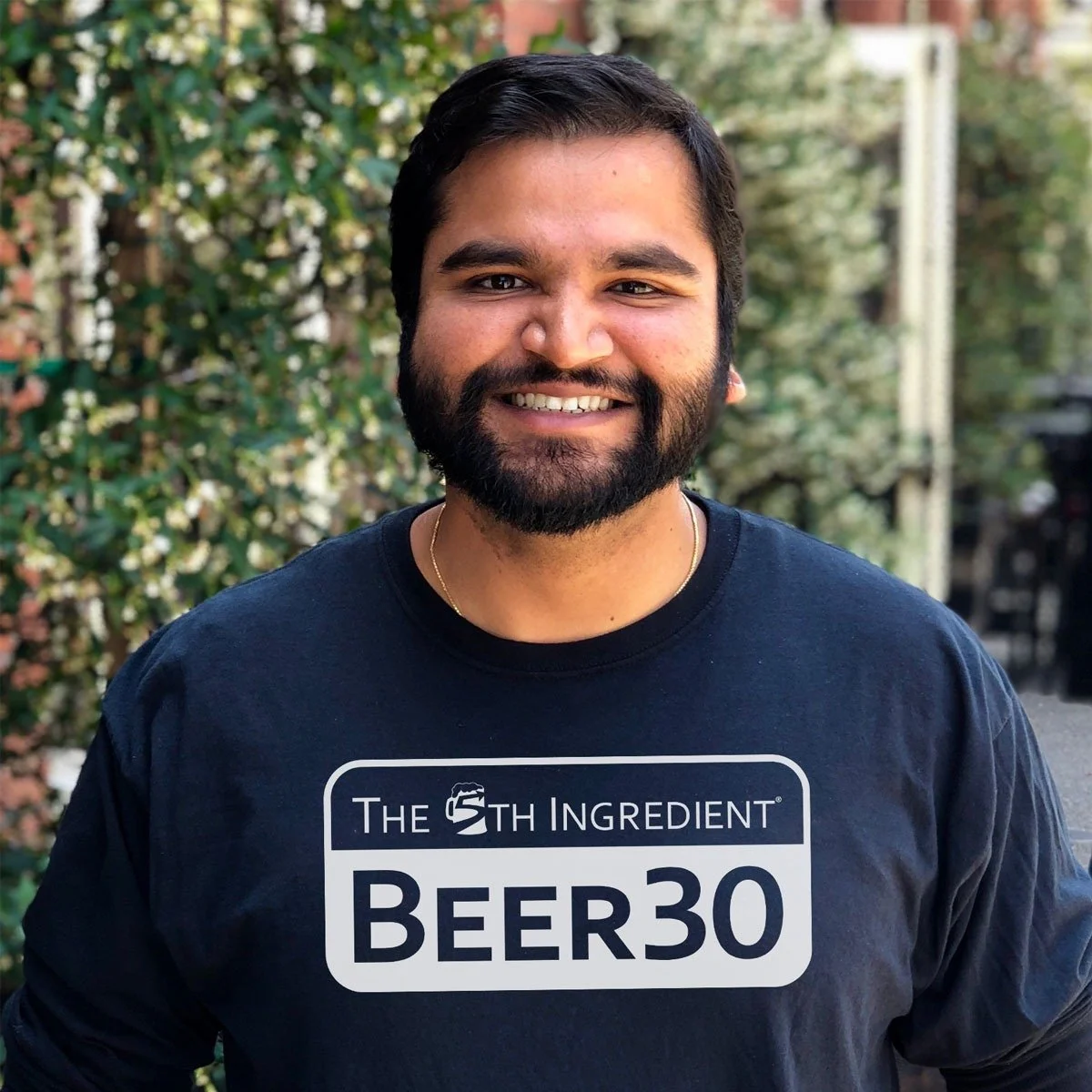CBP Connects: St. Louis, MO
JUNE 20-22, 2022
MONDAY, JUNE 20, 2022
Welcome Reception at Perennial Artisan Ales thanks to White Labs
TUESDAY, JUNE 21, 2022
Welcome/Get to Know Your Fellow Craft Beer Professionals
Andrew Coplon (Founder, Craft Beer Professionals/Secret Hopper)

Christian Naffziger (Editor, St. Louis Patina)
While St. Louis may be synonymous with global titan Anheuser-Busch INBEV today, the story of how brewing developed in the Gateway City has a fascinating history going back two hundred years. Initially, the influence of English brewing saw the crafting of ales and porters in St. Louis. But with the arrival of German immigration in the 1830s, demand for new styles of beer came with them. Adam Lemp, an immigrant from Hesse, lays claim to being one of the earliest brewers of German-style lager beers in America, opening the Western Brewery in 1840. By the beginning of Prohibition, the Lemp Brewery would be exporting beer around the world.
By the 1880s, St. Louis was home to dozens of breweries, many of which took advantage of the cave systems that honeycombed the limestone bedrock under the city. Many of these subterranean lagering cellars still survive, abandoned after St. Louis breweries pioneered artificial refrigeration. Chief among them was Anheuser-Busch, which rose to become one of the largest breweries in America from humble beginnings founded by a German eye doctor.
After Prohibition, Anheuser-Busch and Falstaff came to dominate the brewing industry in America from their headquarters in St. Louis. After Falstaff stumbled in the 1970s, its breweries were abandoned in St. Louis, and for the first time in its history, Anheuser-Busch was the only brewery left in the city. After the acquisition of Anheuser-Busch by INBEV, St. Louis has seen an explosion of microbreweries open, some in old brewery buildings abandoned over a century ago.
Learning Objectives:
Learn how German American brewers utilized their knowledge of lager beer and the naturally cool cave system of St. Louis to produce a new style of beer for the growing American market.
Learn how St. Louis breweries were also pioneers of artificial refrigeration. Both Lemp and Anheuser-Busch were early supporters and clients of Theodore Krausch, who developed early ammonia-based refrigeration for breweries.
Learn how St. Louis breweries used architecture as branding and advertising to promote their beer and companies.
Chris Naffziger is an art and architectural historian who specializes in the study of brewing history in St. Louis, Missouri. For the past fourteen years, he has been the editor of the architecture blog St. Louis Patina, and he has written several articles about the history of Falstaff and Anheuser-Busch for the British scholarly journal Brewing History. He is publishing an upcoming biography of Adam Lemp, the founder of the Western Brewery in St. Louis.

Julie Rhodes (Owner, Not Your Hobby Marketing Solutions)
With over 2 decades of experience in the food and beverage industry, Julie Rhodes is an authority on beverage sales, digital marketing, leadership, and distributor partnership management. She is the owner of Not Your Hobby Marketing Solutions, an educational services, and strategic business consulting company built specifically for growing craft beverage brands, where she teaches small to medium-sized beverage alcohol companies how to work smarter, not harder, in order to achieve long term growth. In addition to being an educator and strategic advisor, she is also a business writer, public speaker, is Cicerone Certified, a national committee chair and local chapter leader within Pink Boots Society, and a mentor for the Brewers Association and on the BA DEI Marketing & Communications Subcommittee, the North American Guild of Beer Writers, the American Cider Association, Women of the Vine & Spirits and multiple state brewery guilds. When not working, you can find her spending time with her husband and two boys in the Rocky Mountains of Colorado or on the couch watching sci-fi movies.
KPIs (key performance indicators) are metrics that can help determine the health of your retail sales environment. They can be anything from sales volume to market segment ratios, classes of trade to the distribution of market share, or tap handles in the market compared to shelf spots in chain accounts. KPIs help suppliers identify areas of improvement, but can also help us realize how we can recreate success without reinventing the wheel. The questions I hear the most from suppliers are: which KPIs are most important? What tools do I need to collect this data? And once I have the data, how do I interpret the results to impact my sales? In this session, we will cover all of those things.
Learning Objectives:
-
How to identify and build a set of core retail sales Key Performance Indicators
-
Know what software tools you need to collect and analyze your retail sales data (and how much they cost)
-
How to create strategic retail sales plans based on your core set of KPI data
Lunch Break/Mini Trade Show/Networking


Dana Kaluzny (Co-Founder / Project Facilitator and Mentor, Endswell Beer / Dana Kaluzny) and Tom Halaska (Global Brand Manager, WellBeing Brewery)
Join Tom and Dana as they pay it forward from their own journeys to inspire you to step away from the conversation with integrated strategies to nourish you and your employees social, mental, and physical wellbeing.
The craft beer industry is in a time of reckoning with an all-time record of people leaving their jobs, and employers struggling to fill vacant roles. 1 in 5 employees left a job at some point in their career because of its toxic organizational culture. By one estimate, employee turnover triggered by a toxic culture cost U.S. employers nearly $50 billion per year pre-pandemic.
What makes a brewery’s culture toxic is often the elevated levels of stress, burnout, mental health issues and pain experienced at work or as a result of their work. While these types of experiences are often common, they are not talked about by and among peers in craft beer. The consequences of the endured pain and silence lead to disengagement in many forms.
Two leaders in craft beer share their honest stories of quitting — leaving toxic behaviours, routines, and craft brewery cultures and finding their way to a balanced way of life working inside and living outside of craft beer. Where their identities are more than what they drink or the brewery they work for.
Learning Objectives:
-
Understand why your employees may be ACTUALLY leaving, or why talented candidates aren’t applying to work at your brewery
-
Better identify the different types of endured pain and silence by employees (even in the healthiest of company cultures) that lead to disengagement and poor performance
-
Learn integrated strategies you can apply to your brewery so you and your employees live within the craft beer industry, not for the beer (while still appreciating it)
References: Toxic Culture Is Driving the Great Resignation and Why Every Leader Needs to Worry About Toxic Culture.
 Devin Tani (Marketing Engagement & Education Coordinator, White Labs)
Devin Tani (Marketing Engagement & Education Coordinator, White Labs)
Devin Tani received a B.S. degree in chemistry from the University of California, Irvine, as well as a Professional Certificate in Brewing from the University of California, San Diego Extension. Devin has had various roles at White Labs previously working in both the R&D and Analytical Lab, now becoming the Education & Marketing Engagement Coordinator. He now hopes to spread his scientific knowledge to others. Devin loves teaching about the nuances and scientific importance of fermentation.
Learning Objectives:
-
The importance of product handling and understanding fermentation for all roles, not just cellar-persons. From quality to cost of goods each role handles some aspect or byproduct of yeast and fermentation whether as a raw ingredient or finished product.
-
From shelf stability to COG’s we’ll dive into how yeast and fermentation touch each role in the brewery.
-
Arm yourself with ways to educate staff on the importance of fermentation.
Snack Break/Mini Trade Show/Networking


Isaac Arthur and Cody Fague (Co-Founders, CODO Design)
CODO Design is an Indianapolis, Indiana-based food and beverage branding firm founded in 2009 on the belief that we can create better work by putting collaboration at the center of everything we do. We develop strategically-sound branding and packaging that cuts through the noise and drives long term revenue growth.
Isaac Arthur is a co-founder of CODO Design, an Indianapolis-based food & beverage branding firm founded in 2009 on the belief that they can create better work by directly including clients in the creative process. He is the author of the Craft Beer Branding Guide, co-author of Craft Beer, Rebranded, and writes a popular monthly mailer with over 5,500 subscribers called the Beer Branding Trends Newsletter. He also co-hosts the Beer Branding Trends podcast, where he dives into the art and science of building stronger beverage brands.
Cody Fague is a co-founder of CODO Design. Since 2009, he’s led branding efforts within the food and beverage industry, and spends most of his time helping craft breweries rebrand and redefine their foundational positioning, developing brand strategy, identity and internationally-recognized package design that sells more beer. He is a co-author of CODO’s latest book, Craft Beer, Rebranded, and co-hosts CODO’s Beer Branding Trends Podcast.
Is your brewery planning to launch an RTD cocktail, hard seltzer or other non-beer beverage this year? If so, there are important branding considerations at play. Do you position this new offering alongside your beer portfolio, or under a new name? How do you promote it? What will your fans think? What if it sells better than your beer?
Craft beer branding experts Isaac Arthur and Cody Fague will walk you through a bullet proof decision tree to determine the best Brand Architecture approach for extending your brewery’s brand beyond beer.
You will then learn how brand extensions, endorsed brands and sub-brands can help your brewery bring new products to market and grow your business—without diluting your core positioning.
Learning Objectives:
-
You will learn four practical brand architecture strategies for launching new products and extending your brewery’s brand beyond beer.
-
You will learn about Brand Architecture and why it is so critical for scaling your business.
-
You will learn how to manage line extensions and brand extensions.
Reception at 4 Hands Brewing Company thanks to Strike Visuals
WEDNESDAY, JUNE 22, 2022
Morning Coffee/Get to Know Your Fellow Craft Beer Professionals

Warren Bondi (Co-Founder/CMO, Beer Marketeers)
Warren has been working in the sales and marketing world for 8+ years. He started his career in alcohol doing marketing for a few restaurants and bars in Louisiana during college (where he started the parent marketing company to Beer Marketeers). He then kept his small marketing company around while doing alcohol sales for a couple different distributors and working in the tech marketing industry to keep beefing up his marketing chops. After meeting his now business partner, they created a beer fest, which led them to other projects together and made them think they could build a marketing company around helping businesses in the beverage industry with their combined industry experiences – which they did and continue to grow.
When we think about marketing and communication, so often we think about the best strategies for you to reach your potential customers. We will shift the focus to how your team can maximize internal interactions. From the brewer to the beertender, having everyone on the same page is vital to long-term success. In this session, you will learn the value of sharing information, gathering everyones input to build stronger marketing, and gain the strategies to create the more valuable and efficient workflows that will produce better results.
Learning Objectives:
-
Discuss the benefits to company-wide communication
-
Understand the communication needs of each team member and better strategies to empower them to be effective decision makers
-
Learn how to implement successful processes to get your team on the same page and improve communication across departments
-
Discover a toolkit that well help you and your team stay organized.

Maggie Read (Sr. Growth Specialist, Arryved POS)
Maggie comes from the world of craft beer and has done a little bit of everything at Arryved! After working at several Colorado breweries, she came to Arryved to help other businesses excel in offering world-class service and hospitality. When she’s not working, she likes to hit the ski trails in the winter and the running trails in the summer!
Taproom management is a jack of all trades kind of gig, requiring excellent leadership, innovation, and customer service savviness. In the Taproom Management 101 session, industry experts from different areas of the taproom will illustrate what it takes to be an exceptional Taproom Manager. We will discuss how to curate an efficient, enthusiastic team environment, experiment with new ways to create elevated guest experiences, and how hosting community-building events can boost bottom lines.
Whether you’re hiring a Taproom Manager, or brushing up on these skills as a Manager yourself, this session will leave you with a holistic understanding of how to best run a taproom.
Learning Objectives:
-
New ways to create elevated guest experiences
-
How to drive traffic in-person and online with clever marketing initiatives
-
Utilizing reporting tools to identify key insights and growth opportunities

Matt Albrecht (Founder/Owner, River Drive Cooperage)
Matt grew up in a family of woodworkers and craftsmen. Starting River Drive in 2008, he quickly focussed his woodworking skills towards wooden barrels; Seeking to improve and revitalize the nearly lost art of coopering. Since, Matt and his team have outgrown the 2 car garage they started in, and now run River Drive Cooperage and Millwork on an old 40 acre farm in scenic New England.
Join Matt to understanding the keys to consistency, efficiency, and marketing of your aging program. In this workshop session, you will learn how to keep the floors dry and the CFO happy. Better barrels, better yields!
Learning Objectives:
-
Quality – Sourcing and ensuring quality wood.
-
Consistency – Achieving consistent flavors and characteristics.
-
Control – Leveraging data and products to put you in control of your aging program.
Lunch Break/Mini Trade Show/Networking

Pulkit K. Agrawal (Founder & CEO, The 5th Ingredient)
Pulkit K. Agrawal (PK) is the Founder and CEO of The 5th Ingredient®, a leading brewery operations management software company dedicated to helping breweries improve beer quality and consistency. After graduating from Harvard College, Agrawal began working in the beer industry as a Process Engineer for Ballast Point Brewing, where he focused on packaging lines and nitrogen beer. He soon discovered a need in the market for software that expanded beyond standard inventory management systems, where there would be an emphasis on the brewing process and quality, not just inventory tracking. In January 2018, Agrawal launched Beer30®, a brewery data management system that offers grain-to-glass process data tracking. Beer30 focuses on real-time brewing data input, raw material inventory, cost of goods analysis, quality and sensory tracking, sales and distribution and accounting integration. Beer30 is currently in more than 250 breweries globally, helping to #BrewMoreBeer and #BrewBetterBeer across the nation. In his free time, Agrawal enjoys traveling, and speaking about entrepreneurship and using data to improve brewery efficiency and quality.
In this interactive workshop, Pulkit will lead the session on focusing on the three step process on setting up key metrics. (1) WHAT & WHY — The importance of setting metrics and measurable goals at your brewery in four key areas — Process & Quality, Operations, Marketing, and Sales. (2) HOW — How to set up these metrics at your brewery. (3) EVALUATE — Identify what success looks like and how to improve the results for the future. The session will be broken down into three 20-minute components. The first 20-minutes will be focused on education and diving into the definitions of KPI and the importance to a brewery with examples on the three step process. The second 20-minutes will be in groups where individuals will work in teams of 10-15 that are sitting around them to begin outlining the examples that they are using or interested in using at their brewery. The final 20-minutes will focus on the teams explaining what they’ve come up with, with Pulkit taking the notes in the presentation. At the end, we’ll be providing handouts on some examples of KPIs in the categories, and will provide the full list people have presented for future use and sharing with their team members at the brewery.
Learning Objectives:
-
WHAT & WHY — The importance of setting metrics and measurable goals at your brewery in four key areas — (1) Process & Quality, (2) Operations, (3) Marketing, and (4) Sales.
-
HOW — How to set up these metrics at your brewery.
-
EVALUATE — Identify what success looks like and how to improve the results for the future.

Jason Sleeman (Vice President-Craft Beverage Lending, United Community Bank) and Nick Matthews (Co-Founder, Mainvest)
Jason Sleeman leads the national craft beverage lending group for United Community Bank. This is a specialty vertical focused on providing funding and exceptional service to breweries and brewpubs looking for bank financing. Jason has been a banker for over 20 years and focused on the craft brewing industry for the last 7 years. He started with funding breweries just in Georgia and now gets the opportunity to work with breweries all over the US.
Nick is the CEO and Co-founder of Mainvest. An expert in marketing and operational strategy, Nick led demand side initiatives for Uber Boston, launching back in 2011. While launching Uber in new markets, both suburban and urban, he experienced firsthand local challenges around economic development. He founded Mainvest in 2018 with the goal of empowering communities to determine their own economic development, utilizing new regulations and novel investment vehicles to align incentives between local community members and small businesses. Nick’s mission is to revitalize the American Dream, one small business at a time.
Capital is the lifeblood of any growing brewery. There are many ways to obtain that funding from friends and family to SBA lending and crowdfunding. We will look at some of the opportunities for missteps in the process and the top 5 mistakes that breweries can make in the process. We will also discuss best practices to secure funding, depending on the type of brewery and what its goals are.
Learning Objectives:
-
You will leave understanding the top mistakes both new and existing breweries make when capitalizing their business and how to avoid them.
-
Y ou will discover multiple options on how to finance your project from both crowdfunding and more traditional funding sources.
-
You will learn how several breweries successfully funded their capital needs and be provided next steps to securing yours.
Snack Break/Mini Trade Show/Networking

Alison Wisneski (Director of Marketing, Lady Justice Brewing), Betsy Lay (Co-Founder/Owner, Lady Justice Brewing), Jamaar Valentine (Regional General Manager, Bevana)
From building it into your day one company business model to realizing the impact various communities have on you once you have opened, you can make a difference. In this session, you will learn about building in giving back into your business plan, communities that could be supporting you more than you realize
Learning Objectives:
-
Understand how to create a mission statement to center on why and how you give
-
Discuss methods for continued contribution to your community
-
Walk away with strategies for thinking outside the box: it’s not just money
Closing Reception at Schlafly thanks to River Drive Cooperage
Receive exclusive CBP content
Sign up to receive the top 3 Craft Beer Professionals threads in your inbox every Monday. Get exclusive CBP announcements and special access to additional educational resources.
